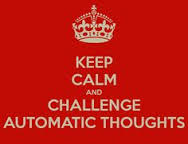Cognitive distortions of Nepali politics:
– Sujan Shrestha
In this time of political chaos and polarisation in Nepal, a great fissure is seen not in netas only but among the people also which is more evident if you map the twittesphere of Nepalese twitterati. If somebody doesn’t agree to a person’s statement or opinion then there is a tendency for that person to get ridiculed and tagged with political adjectives. As a psychology student it’s interesting to see the ongoing events. It is actually the source and practical instances of knowledge of social psychology.
One feature of political comments and statues in twitter is there is less honest discussions and arguments but more rant and political salvo of abuses and ridicule which is actually distressing as the Nepali politics is. Why is such negativity, fuming, labelling, ridicule pervasive in the social media? May be it’s something to do with our belief systems. Like in personal lives, we act according to our belief systems. These belief systems are in turn shaped by our thoughts. What we repeatedly think about and give it a mental validation it becomes a belief. One school of psychology believes that that our faulty thoughts are the main reason behind psychological distress and problems. And this can be solved simply by altering the faulty thought process. Here in this article what I am trying to look at is , is there collective faulty thought process which has led to current “political depression”?
Cognitive distortions are such strong mental influences which convince us to believe in our beliefs which actually might not be true. Are cognitive distortions of the people playing the role for the current “political depression” among people? I am trying to analyse some of the cognitive distortions which might be responsible for the current political scenario.
1) Externalization: When we attribute all the consequences to external factors disregarding our ownselves and internal factors then this cognitive distortion comes to the picture. In simple language, it is putting blame to others for the situations. This blame game is brewing the biggest animosity among the people. Nepali Congress and UML blame Maoist and Maoist in turn blames them for the failure of CA I. Madhesis put blame for all their misfortunes to the mindset of the pahadiyas. And Janajatis show finger to Brahmins and Kshetris. I guess putting blame is the easiest escaping job from the problem in the current political scenario.
2) Overgeneralization: One great example for this cognitive distortion is the demonization of bahuns and kshetris by madhesis and janajatis. Sometimes the discourse sounds like all bahuns and ksheris are evil and persecutors of minorities. This gross overgeneralization for instance has put majority of the Bahuns and Kshetris in the defensive gear even if they have the best intention to other groups.
3) Labeling: Labeling such as “dhoti” to madhesis is very disrespectful and has turned them vociferously to advocate identity politics. Such labelings create tensions among the people. And another famous political labelling is “high hill hindu Brahmin”. “Baahunbaad” is another one. May be these labels denote to the particular attitudes and behaviours not the persons but its natural that bahuns feel amiss if you rant about “bahunbaad”. Such labelings are polarising the Nepalese politics in the current context.
4) Dichotomous thinking: This cognitive distortion is also called black and white thinking or all or none. This is famously portrayed by the political stand of one Madhes one Pradesh or by the paranoid if all the states are not delineated North and South vertically. One inflexiblity gives birth to the other one. This distortion is the major hurdle for setting up federalism in the country. No one is in the mood to think other spectrum of colors than black and white.
5) Magnification and minimization: The reluctance to give the mother the right to issue the citizenship of her children in her name is the instance of magnification in which some people fear that it will lead to surplus population from the southern neighbour. The basic human right and dignity of women here is denied because of the magnification of the possibility of a escenario. In another extreme there is a problem of minimization as well in which people make the big issues as insignificant. Like for example, some people try to minimize the injustices and inequalities in the society by equating them to individual instances.
These are the commonly seen cognitive distortions among the people taking part in the political discourse. How to change these existing faulty poliltical thoughts which have given rise to the cognitive distortions? The answer to this question can only given by our netas with positive political intervention. Till then lets try to think from others perspective and develop empathy and then evaluate our own perspective. Meanwhile I wish this ongoing and sickening “political depression” be over soon .
( The writer unfortunately sometimes gets embroiled with cognitive distortions in both personal and political matters)



